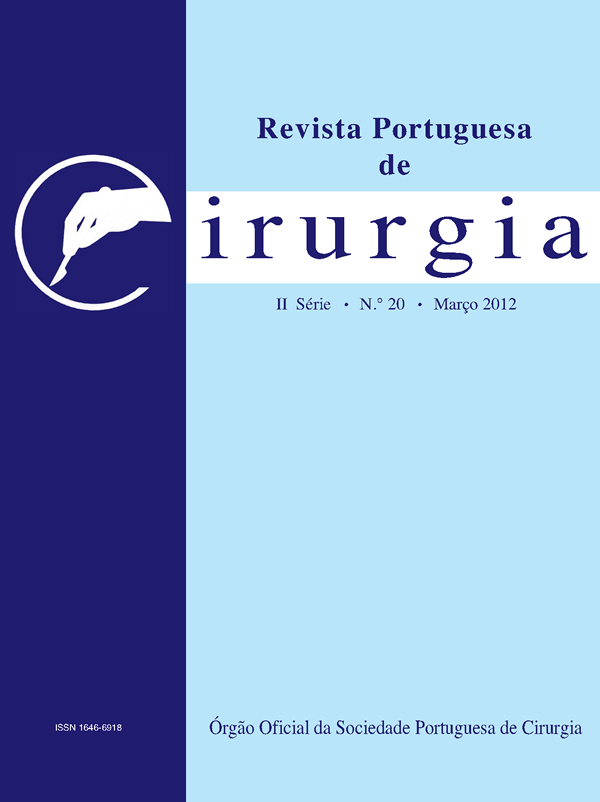Value of Citrullinemia on Intestinal Function Evaluation in Short Bowel Syndrome
Abstract
Introduction: Several studies suggest that citrullinemia may represent an objective and reproducible parameter of the enterocyte mass and function.
Objectives: To study the value of citrullinemia in intestinal function evaluation of short bowel syndrome.
Material and methods: A case-control study, including 11 patients with short bowel syndrome subsequent to massive enterectomy and 11 healthy controls, was undertaken. Plasma levels of amino acids were determined by ion exchange chromatography.
Results: In the first group, six patients presented a type III syndrome, five were in post-adaptation phase and nine were nutritionally autonomous; mean length of residual gut was 87,5±48,2 (30-190) cm. Citrullinemia in short bowel syndrome patients was inferior (28,6±11,3 versus 32,2±6,6; n.s.) and lower than 24 μmol/L in 45,5% of the cases (versus 9,1%; p=0,056; sensitivity=46%; specificity=91%; accuracy=68%). Citrullinemia correlated significantly with time of evolution (Pearson’s coefficient=70,2%; p=0,016) but wasn’t related with nutritional and body composition parameters; it was lower in cases with intestinal failure (17±8,5 versus 31,1±10,5 μmol/L; n.s.) and type I syndrome (25,3±4,9 versus 28±12 μmol/L; n.s.).
Conclusion: Present series suggests that citrullinemia, although susceptible to clinical and laboratorial interferences, may be useful in definition of prognosis and monitorization of short bowel syndrome.
Keywords: Citrullinemia, intestinal function, short bowel syndrome, ornithinemia
Downloads
Downloads
Published
Issue
Section
License
Para permitir ao editor a disseminação do trabalho do(s) autor(es) na sua máxima extensão, o(s) autor(es) deverá(ão) assinar uma Declaração de Cedência dos Direitos de Propriedade (Copyright). O acordo de transferência, (Transfer Agreement), transfere a propriedade do artigo do(s) autor(es) para a Sociedade Portuguesa de Cirurgia.
Se o artigo contiver extractos (incluindo ilustrações) de, ou for baseado no todo ou em parte em outros trabalhos com copyright (incluindo, para evitar dúvidas, material de fontes online ou de intranet), o(s) autor(es) tem(êm) de obter, dos proprietários dos respectivos copyrights, autorização escrita para reprodução desses extractos do(s) artigo(s) em todos os territórios e edições e em todos os meios de expressão e línguas. Todas os formulários de autorização devem ser fornecidos aos editores quando da entrega do artigo.



